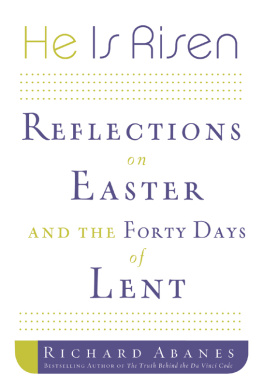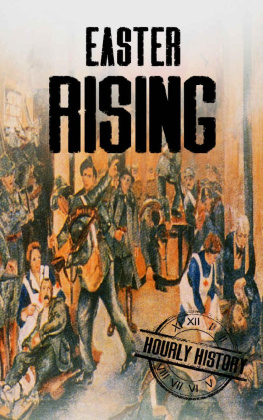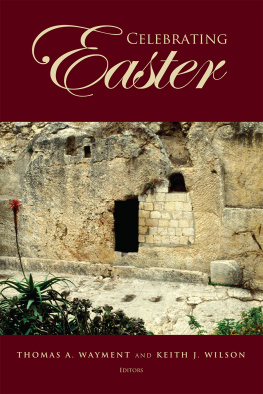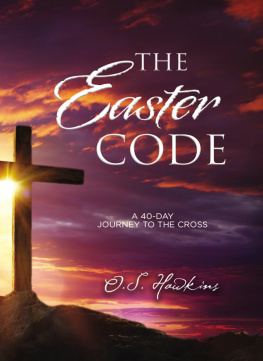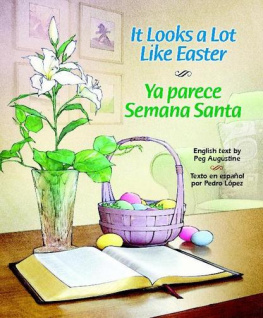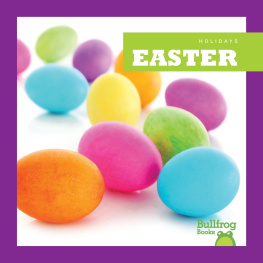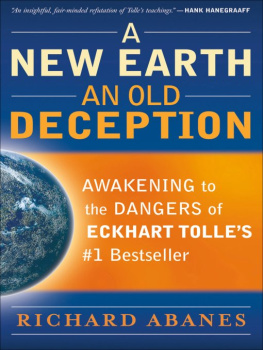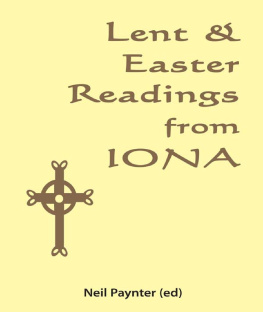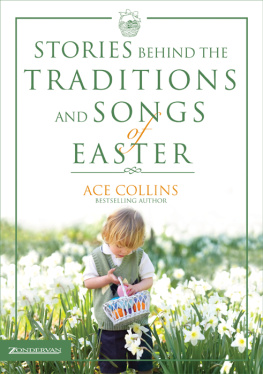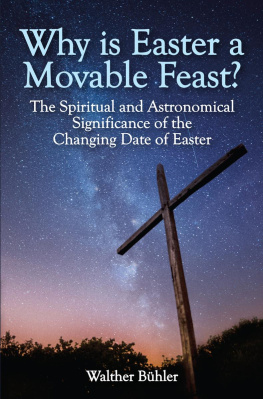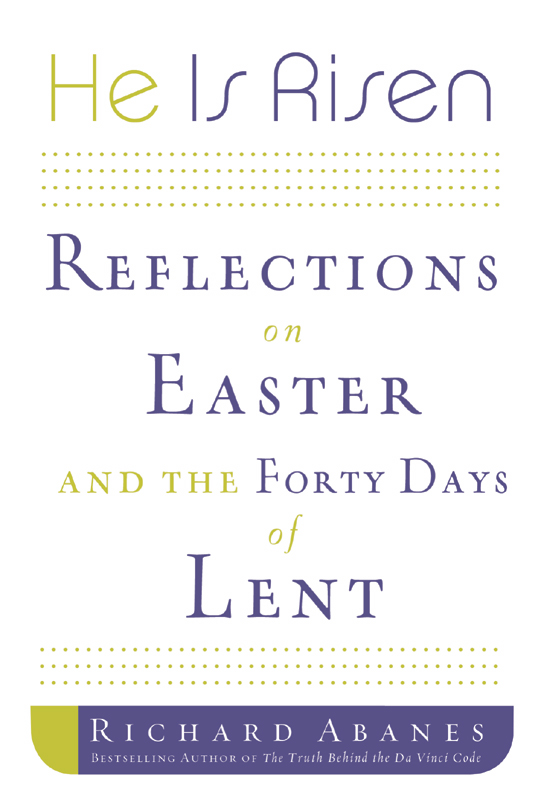Copyright 2008 by Richard Abanes
All rights reserved. Except as permitted under the U.S. Copyright Act of 1976, no part of this publication may be reproduced, distributed, or transmitted in any form or by any means, or stored in a database or retrieval system, without the prior written permission of the publisher.
Scripture taken from the HOLY BIBLE, NEW INTERNATIONAL VERSION (NIV). Copyright 1973, 1978, 1984 International Bible Society. Used by permission of Zondervan. All rights reserved.
Revised Standard Version of the Bible (RSV), copyright 1952 [2nd edition, 1971] by the Division of Christian Education of the National Council of the Churches of Christ in the United States of America. Used by permission. All rights reserved.
FaithWords
Hachette Book Group
237 Park Avenue
New York, NY 10017
Visit our Web site at www.faithwords.com.
First eBook Edition: February 2008
FaithWords is a division of Hachette Book Group, Inc. The FaithWords name and logo is a trademark of Hachette Book Group, Inc.
ISBN: 978-0-446-51130-8
also by Richard Abanes
What Every Parent Needs to Know About Video Games
The Truth Behind the DaVinci Code
also by Richard and Evangeline Abanes
Homeland Insecurity: A Novel
Mom and Dad, Happy Easter.
Thank You
Steve Laube
Twas Easter-Sunday. The full-blossomed trees
Filled the air with fragrance and with joy.
Henry Wadsworth Longfellow
1807-1882
American poet
N ext to Christmas, my favorite holiday as a young boy was Easter. It was a season of decorating eggs with my family, giving baskets of homemade goodies to friends, and visiting the malls six-foot-two-inch white bunny who passed out free candy. Ill never forget sprinting around a field or yard, my eyes peeled for those elusive stashes of brightly colored hardboiled treasures, hoping to find the coveted, one-of-a-kind speckled egg.
Then came the Easter feast. I will forever remember the yearly sight of my Gran-Grans dinner table, lusciously laden from end-to-end with delectable foods, carefully prepared and lovingly presented in piping hot pots and on sizzling plates. We formed a line to go around to each dish, taking more than enough to fill our stomachs. The choices seemed endless: glazed ham, turkey, mashed potatoes and homemade gravy, rice, green beans, yams with cinnamon, and corn on the cob. After all of that came dessert: pies, pies, pies... then more pies.
Over the years, little has changed in the way we celebrate Easter in America. Egg hunts, gift baskets, and Sunday feasts are as popular as ever and provide immeasurable joy to children and adults alike. But, there is far more to Easter. For Christians worldwide, the holiday celebrates the faiths foundational event and doctrinal cornerstone: the resurrection of Jesus of Nazareth three days after his crucifixion. The importance of this miracle cannot be overstated. As Paul the apostle explained, If Christ has not been raised, your faith is futile (1 Corinthians 15:17 NIV).
Given the pivotal nature of the resurrection, it is not difficult to see why followers of the Man from Galilee have set aside a day to commemorate his glorious return to life. That singularly wondrous event simultaneously confirmed Christs authority over death, proved his divinity in the eyes of witnesses, fulfilled Old Testament prophecies concerning the Messiah, and made possible the salvation of all those who, by faith, accept his sacrifice on the cross for their sins.
Easter is a holy day that embodies the very heart and soul of the Christian gospelthe Good News that Christ lives. For what I received I passed on to you as of first importance: that Christ died for our sins according to the Scriptures, that he was buried, and he was raised on the third day (1 Corinthians 15:34 NIV). We, too, can live, as Jesus himself emphatically declares in John 11:25, I am the resurrection and the life. He who believes in me will live, even though he dies (NIV).
If there is anything on the earth worth celebrating, it is surely this promise. Consider the thoughts of distinguished Bible teacher J. Dwight Pentecost, who aptly summarized the meaning of the Easter miracle in his book Things Which Become Sound Doctrine:
Since Jesus Christ is raised from the dead, we who have received Him as Savior have the assurance that sins have been forgiven and that the next step in the program is resurrection into His glory.... So there is victory through the resurrection of Christvictory over sin, victory over defeat, victory over despair, victory over fearbecause Christ hath been raised and He said, If I live, ye shall live also. This is the message of certainty and hope that we have.... [S]hould death be our experience, we rest in hope, for death has been robbed of its venom because Christ has been raised from the dead.
Christians have adopted a myriad of ways to observe the holy day of Easter and depict Christs victory over death. Some of them are ancient, while others are far more recent in origin. All of them, however, point to the inescapable message of ChristianityChrist is risen!
This book is a series of readings meant to not only bring the Easter story to life, but also to highlight many of the customs, traditions, and symbols that have come to represent Jesus resurrection. My hope is that by looking at what happened on that initial Easter Sunday and at how that event continues to be celebrated, we can find a new level of appreciation for the holiday and what it represents to Christians.
Following the Christian calendar for the season, our short meditations will lead us day by day toward the crucifixion and ultimately to Resurrection Sunday. It is a path that untold numbers of Christians have been walking for 2,000 years. Enjoy the journey!
On a hill far away stood an old rugged cross,
The emblem of suffering and shame;
And I love that old cross, where the dearest and best,
For a world of lost sinners was slain.
George Bennard
18731978
American hymnist
The Celebration Begins
The Tale of Pancake Tuesday
Now Johns disciples and the Pharisees were fasting. Some people came and asked Jesus, How is it that Johns disciples and the disciples of the Pharisees are fasting, but yours are not? Jesus answered, How can the guests of the bridegroom fast while he is with them?
Mark 2:1819 NIV
T o prepare themselves spiritually for Easter, Christians observe Lenta time of fasting, charity and reflection. This is why, in many parts of the world, the day before Ash Wednesday (when the Lenten fast begins), is devoted to feasting. In England, Australia, and Ireland, for example, the Easter season begins on Pancake Tuesday. This name derives from the old custom of removing the eggs, flour, milk and fats from the kitchen in preparation for the Lenten fast.
To use up these items, in the days before modern preservation methods became available, cooks made pancakes for the days meals. Pancakes are still made today, shared with families and friends, and are sometimes sold at community functions to raise money to donate to charities during Lent.
Pancake Tuesday is also known as Shrove Tuesday after the tradition of confessing ones sins to someone before Lent starts. To shrive in Old English means to absolve (or forgive) the sins of someone else, a practice that, in the Middle Ages, coincided with the ringing of the Pancake Bell that called everyone to confession. It also signaled families to begin making their batter for a pancake lunch. In many cities and towns, this custom of ringing the Shrove Bell continues, much to the delight of twenty-first century celebrants.

